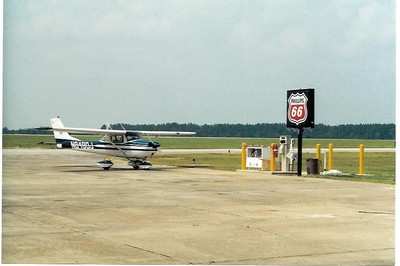Thu, Dec 08, 2016
Running An Airplane Out Of Fuel Is An Inexcusable Error, But It Still Happens
The loss of LaMia Airline flight 2933 in Columbia late last month has once again raised the specter of an aircraft running out of fuel. At this time, no official finding has been published, but initial evidence is leading to speculation that fuel starvation led to this crash. Despite the fact that recreational flyers are operating small aircraft, both small aircraft and airline operating rules address minimum fuel planning criteria.

Let’s take a look at the fuel requirements as spelled out in FAR 91. For the sake of this discussion we’ll just stay with VFR flying. The regulations require us to have enough fuel to reach the destination and then have a reserved for 30 minutes if it’s daytime, and 45 minutes if it’s nighttime. We can find at least 3 places in FAR 91 where the pilot is held responsible to be in compliance with these requirements.
You may find it odd that if you run out of fuel and either make a forced landing or require special ATC handling, the actual running out of fuel is not against the rules; it is the rules regarding the planning of the flight that have been violated.
You’ll also find that FAR 91 clearly states that a pilot may deviate from the regulations in the case of an emergency. However it’s important to remember, if the pilot created the emergency through improper preflight planning, the pilot can be held responsible for violating the planning rules. The same thing applies to ATC clearances in an emergency situation. If the pilot of an aircraft declares an emergency to ATC, the controllers are obligated to provide priority handling. Remember, ATC is not a police force; their sole purpose is to be of service and maintain safety.
If you are running low on fuel it’s critically important to use the proper terminology when advising ATC that expedited handling is necessary. Due to other airline accidents that were positively determined to be caused by fuel exhaustion, the FAA has made it very clear that in a fuel emergency situation, all pilots - whether flying small or large aircraft, must declare that there is indeed a “fuel emergency” in order for ATC to fully understand the need for expedited handling.
The best bet is, always plan carefully and don’t run out of gas.
(Image from file)
More News
Airport Marking Aids Markings used on runway and taxiway surfaces to identify a specific runway, a runway threshold, a centerline, a hold line, etc. A runway should be marked in ac>[...]
"It is extremely difficult, if not impossible, for manned aircraft to see a drone while conducting crop-enhancing and other aerial applications at low altitudes and high speeds. We>[...]
Aero Linx: The Skyhawk Association The Skyhawk Association is a non-profit organization founded by former Skyhawk Pilots which is open to anyone with an affinity for the A-4 Skyhaw>[...]
“The T-54A benefits from an active Beechcraft King Air assembly line in Wichita, Kansas, where all required METS avionics and interior modifications are installed on the line>[...]
Aero Linx: Aerostar Owners Association The Association offers the Aerostar Owner a unique opportunity to tap an invaluable source of information concerning the care and feeding of >[...]
 ANN's Daily Aero-Term (04.28.24): Airport Marking Aids
ANN's Daily Aero-Term (04.28.24): Airport Marking Aids Aero-News: Quote of the Day (04.28.24)
Aero-News: Quote of the Day (04.28.24) ANN's Daily Aero-Linx (04.28.24)
ANN's Daily Aero-Linx (04.28.24) Aero-News: Quote of the Day (04.29.24)
Aero-News: Quote of the Day (04.29.24) ANN's Daily Aero-Linx (04.29.24)
ANN's Daily Aero-Linx (04.29.24)



